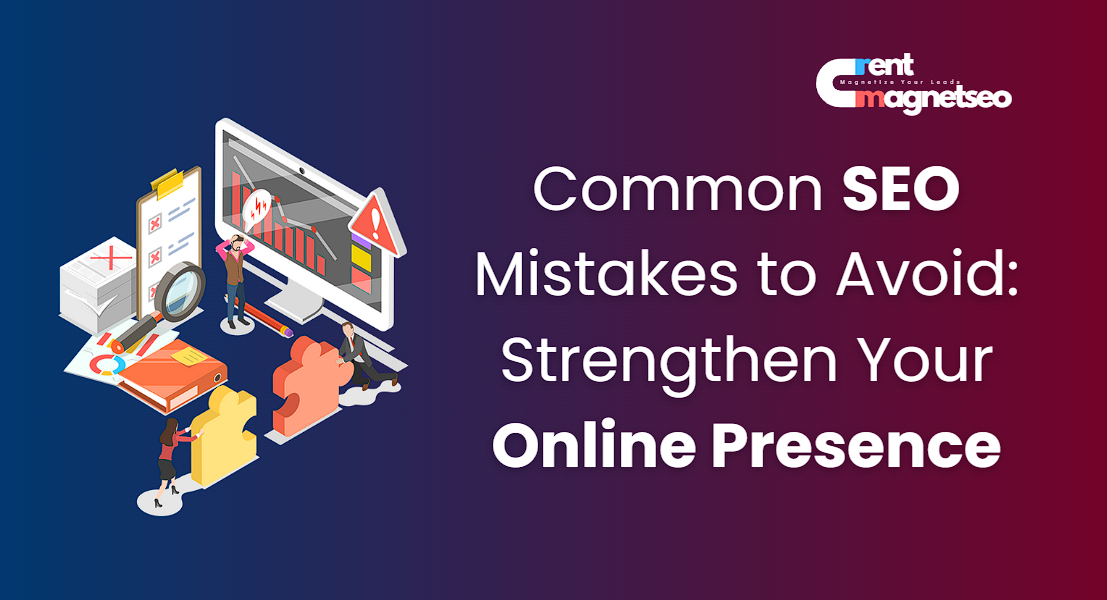If you want to strengthen your online presence, read this Common SEO Mistakes to Avoid. First, complete keyword research; understanding search intent and using tools like Google Keyword Planner can boost your rankings. Avoid poor-quality content and keyword stuffing; focus on valuable insights instead. Ensure your site is mobile-optimized and has fast load times; both are essential for user experience. Make sure to pay attention to meta descriptions; they enhance click-through rates. Addressing these common pitfalls can greatly improve your site’s SEO performance. Stay tuned for more detailed strategies to elevate your online game.
Ignoring Keyword Research

One of the biggest mistakes you can make in SEO is disregarding keyword research. Without it, you’re moving forward without a map, and your content won’t align with what users are searching for. This leads to missed opportunities for capturing organic traffic and can result in poor search engine rankings.
Start by understanding search intent—what your audience seeks when they type in specific queries. Are they seeking information, looking to make a purchase, or just browsing? Identifying this will help you choose the keywords that match their intent, ensuring your content meets their needs.
Keyword research isn’t just about picking popular terms; it’s about finding relevant keywords with a good balance of search volume and competition. Tools like Google Keyword Planner or SEMrush can help you discover these valuable keywords. Once you’ve identified them, integrate them naturally into your content, meta tags, and title tags.
Poor Quality Content

While identifying the correct keywords is essential, your content must be high quality and engage your audience. Poor-quality content can severely undermine your SEO efforts. One major pitfall is thin content, which offers little to no value to readers. Search engines prioritize detailed, informative content, so make sure your articles are thorough and beneficial.
Another common mistake is content duplication, where identical or very similar content appears on multiple pages of your site. This needs to be clarified for search engines, leading to lower rankings. Ensure each page has unique, original content to avoid these penalties.
Keyword stuffing is also a big no-no. Overloading your text with keywords in an attempt to manipulate rankings can backfire. Search engines are smart enough to detect this tactic and may penalize your site, making it harder for users to find you.
To create high-quality content, focus on writing for your audience first and search engines second. Provide valuable insights, answer common questions, and maintain a natural flow. This approach improves your rankings and keeps your readers engaged and returning for more.
Neglecting Mobile Optimization
Mobile optimization can greatly improve your website’s performance and user experience in today’s digital landscape. With more users accessing websites via their smartphones, it’s vital to guarantee your site is mobile-friendly. If your site isn’t optimized for mobile devices, visitors will likely encounter issues such as slow load times, difficult navigation, and poor readability. These issues can frustrate users, leading to a higher bounce rate and potentially driving them away from your site altogether.

Mobile optimization ensures your website looks and functions well on all mobile devices. This includes responsive design, which adjusts the layout based on the screen size and optimizes images and content to load quickly on mobile networks. This aspect is necessary to avoid alienating a significant portion of your audience.
Furthermore, search engines like Google use mobile-first indexing, meaning they primarily use the mobile version of your site for ranking and indexing. If your site isn’t optimized for mobile, it could negatively impact your SEO rankings. Ensuring a seamless user experience across all devices is not just a best practice; it’s crucial for maintaining visibility and engagement in the competitive online space.
Overlooking Meta Descriptions
Neglecting meta descriptions can greatly undermine your SEO efforts and reduce your site’s click-through rates. These brief snippets give searchers a glimpse of what your page offers, influencing their decision to click. While meta and title tags often get the spotlight in on-page SEO, overlooking meta descriptions can be a critical error.

Meta descriptions should be concise, compelling, and include relevant keywords. They don’t directly affect your rankings but significantly drive traffic from search engine results pages (SERPs). A well-crafted meta description can entice users to visit your site, improving your click-through rate (CTR).
Always make sure your meta descriptions are unique for each page. Duplicate descriptions can confuse search engines and diminish your site’s SEO performance. Complementing your meta tags and title tags, these descriptions should accurately reflect the content on the page and align with search intent.
Moreover, if you don’t provide a meta description, search engines will automatically pull text from your page, which may not be as engaging or relevant. By optimizing your meta descriptions, you enhance your on-page SEO and, ultimately, strengthen your online presence.
Slow Page Load Times
Ignoring slow page load times can severely impact user experience and search engine rankings. When your website takes too long to load, visitors will likely abandon it quickly, leading to a poor user experience (UX). Google and other search engines consider page load speed when determining rankings so that a slow site can harm your visibility.

Addressing slow page load times falls under technical SEO, which involves optimizing your website’s backend. Start by compressing images, as large files can drastically slow down your site. Tools like Google PageSpeed Insights can help you identify elements that need improvement. Additionally, consider leveraging browser caching to store static files so they load faster for returning visitors.
Another effective technique is to minimize HTTP requests by reducing the number of elements on a page. Combining CSS and JavaScript files can also help speed up load times. Using a Content Delivery Network (CDN) distributes your site’s content across multiple servers, ensuring quicker access for users around the globe.
Frequently Asked Questions
How Does Internal Linking Impact My Site’s Seo?
Internal linking is essential for your site’s SEO. It helps search engines understand your site’s structure and content hierarchy, making it easier to crawl and index. Plus, it distributes link equity across your pages, boosting their rankings. Proper internal linking enhances user experience by guiding visitors to relevant content, keeping them engaged longer. So, pay attention to internal links; they can greatly strengthen your site’s SEO.
What Are the Best Practices for Local Seo?
For local SEO, you’ll want to optimize your Google My Business profile, ensuring your NAP (Name, Address, Phone number) is consistent across all platforms. Remember to gather and respond to customer reviews. Local keywords in your content and meta descriptions can boost your visibility. Verify that your website is mobile-friendly and fast. Finally, acquire local backlinks from reputable sources to enhance your local search ranking.
How Important Is Social Media for Seo?
Social media is important for SEO because it drives traffic to your website and boosts your online visibility. Sharing content on social platforms increases the chances of getting backlinks and mentions, which search engines value. Plus, social signals like shares and likes can indirectly influence your rankings. So, don’t neglect your social media strategy—it’s integral to a thorough SEO plan.
What Role Do User Reviews Play in Seo?
User reviews play a significant role in SEO. They build trust and credibility and provide fresh, user-generated content that search engines love. Reviews can improve your local search rankings, especially for businesses with a physical location. Positive reviews signal to search engines that your site is valuable and relevant, helping boost your overall rankings. Remember to underestimate the power of user feedback in your SEO strategy.
How Can I Effectively Use Long-Tail Keywords?
To effectively use long-tail keywords, you must focus on specific phrases your target audience is searching for. These keywords often have lower competition and higher conversion rates. Start by researching what questions or problems your audience has, then integrate these phrases naturally into your content. Tools like Google’s Keyword Planner or AnswerThePublic can help you identify valuable long-tail keywords to boost your SEO.

